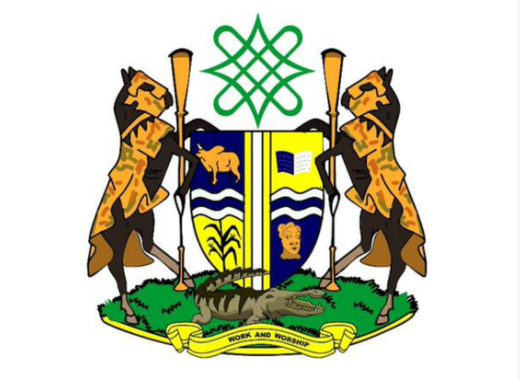Kaduna State history and capital, Kaduna State Local Government Areas and senatorial zones/ districts in Kaduna State. The post also has Local Government Area that make each Kaduna State Senatorial Zones or Districts.
Kaduna is in Nigeria and was founded by British colonists in 1900. It became the capital of Nigeria’s former Northern Region in 1917 It retained this status until 1967. The first British governor of Northern Nigeria, Sir Frederick Lugard, chose the present site for development due to its proximity to the Lagos-Kano Railway
Kaduna is an industrial centre of Northern Nigeria and the Middle Belt, manufacturing products like textiles, machinery, steel, aluminium, petroleum products and bearings. However, the textile industry has been declining because of factory closings due to neglect during military rule and competition with Chinese imports. Other light manufactures include: plastics, pharmaceuticals, leather goods, furniture, and televisions. Some of the main agricultural exports include: cotton, peanuts, sorghum, and ginger.
kaduna state and Local Government Area
The word Kaduna is said to be a corruption of a Gbagyi word/name for a river. Another version of the etymology of the name is a narrative linked to the Hausa word for crocodile – but this is contested by the Gbagyi people known to have lived in the area for centuries. It is indicative that the name, Kaduna, was taken up by Lord Frederick Lugard and his colonial colleagues when they moved the capital of the then Northern Region from Zungeru to Kaduna city in 1916. This move of the colonial office to Kaduna city started in 1912-1918/20 with the initial effort having been made in 1902 from Jebba to Zungeru.
At the start of British colonial rule in northern Nigeria the people groups who live in the area became ‘Northern Nigerians’- a construct which continues even today. By 1967 these people groups again were carved into ‘North Central State’; this was the case until 1975 that ‘Kaduna State’ was formerly created by the then military leader, Gen. Murtala Mohammed, with all distinct identities amalgamated into one state without a referendum. The state hence is the successor of the old Northern Region of Nigeria, which had its capital at Kaduna which is now the state capital to about 6.3 million people (Nigerian census figure, 2006).
The state is located at the Northern part of Nigeria’s High Plains. The vegetation cover is Sudan Savannah type, characterized by scattered short trees, shrubs and grasses. The soil is mostly loamy to sandy type. A substantial amount of clay is found also.
In 1967, the old Northern Region was divided into six states in the north, leaving Kaduna as the capital of North-Central State, whose name was changed to Kaduna State in 1976. Meanwhile, Kaduna State was further divided in 1987, creating Katsina State. Under the governance of Kaduna are the ancient cities of Zaria, Kafanchan, and Nok, the area where Africa’s earliest civilization is recorded to have been excavated. The most intriguing aspect of this area is that the colonial construction and its post-colonial successor called ‘Nigeria’ hardly documented the history or the method of how Kaduna state’s people groups encompassed in these constructs define and identify themselves as such the people groups who populate the area have lived in near oblivion or obscurity as they often are thought of as Hausa people..
Kaduna state has three senatorial district
Kaduna State Local Government Areas
Kaduna State consists of twenty-three (23) Local Government Areas. They are:
Birnin Gwari,
Chikun,
Giwa,
Igabi,
Ikara,
Jaba,
Jema’a,
Kachia,
Kaduna North,
Kaduna South,
Kagarko,
Kajuru,
Kaura,
Kauru,
Kubau,
Kudan,
Lere,
Makarfi,
Sabon Gari,
Sanga,
Soba,
Zangon Kataf,
Zaria.
Abdul A
Kaduna State Senatorial Zones/ Districts
There are three (3) senatorial districts in Kaduna State. Namely: Kaduna Central, Kaduna North and Kaduna South.
Kaduna Central Senatorial Zones / Districts
- Birnin Gwari Local Government Area
- Chikun Local Government Area
- Giwa Local Government Area
- Igabi Local Government Area
- Kaduna North Local Government Area
- Kaduna South Local Government Area
- Kajuru Local Government Area
Kaduna North Senatorial Zones / Districts
- Ikara Local Government Area
- Kubau Local Government Area
- Kudan Local Government Area
- Lere Local Government Area
- Makarfi Local Government Area
- Sabon Gari Local Government Area
- Soba Local Government Area
- Zaria Local Government Area
Kaduna South Senatorial Zones / Districts
- Jaba Local Government Area
- Jemala Local Government Area
- Kachia Local Government Area
- Kagarko Local Government Area
- Kaura Local Government Area
- Kauru Local Government Area
- Sanga Local Government Area
- Zangon Kataf Local Government Area


